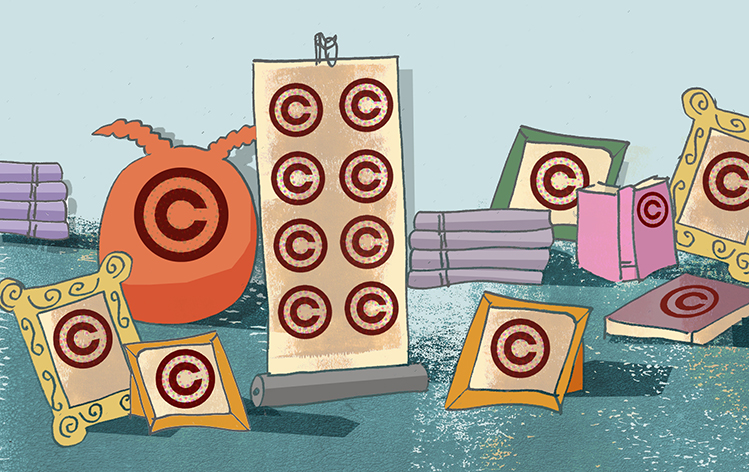Copyright Bootcamp
Section 4 of 7
 What does copyright cover?
What does copyright cover?
Copyright applies to all original works. Some examples are photographs, illustrations, music, movies, educational packs, letters, books, journal articles, designs and inventions.
Are websites covered by copyright?
Original material published on websites is covered by copyright. Some websites describe what may be done with their content, sometimes this includes copying and redistribution. However, content is often freely available to be viewed online but not available to be copied or reused in different contexts. If a website does not state that content can be reused, you should assume the content is protected by copyright.
Copyright and facts
Objective facts are not covered by copyright. They are, in themselves, not 'creative works'. For example, objective data contained within a database or a non-creative way of representing data are not protected by copyright. However, the way facts are presented may be protected by copyright (i.e. may be seen as an original work).
A database will only be original if 'by reason of the selection or arrangement of the contents of the database the database constitutes the author's own intellectual creation'. 'Database right' is similar to copyright and applies to a database if there has been a 'substantial investment' in obtaining, verifying or presenting the contents. A database right lasts only fifteen years from the creation or the substantial reworking of a database. If published during this time the database is protected for fifteen years from publication. Although technically Database Right is different from Copyright, for many purposes (e.g. permissions, licensing, ownership)it can be considered to be the same.
A single database could meet both sets of criteria and be protected by both copyright and database right. Conversely, a database may not meet either and be unprotected. If in doubt it's best to assume a database is protected and seek permission.
How long does copyright last?
With very few exceptions, copyright does not last forever. In many countries, for printed works, copyright lasts for 70 years from the end of the calendar year of the death of the creator. Where the work has more than one creator, the copyright expires 70 years after the death of the last surviving creator.
However, there are so many exceptions to this 'rule', for example; countries with different terms, different arrangements for movies, broadcasts and sound recordings and typographical copyright (see below) that it is difficult to rely on copyright having expired, regardless of the age of the work.
Typography has its own copyright. The typographic copyright of printed works lasts 25 years from publication. This means, for example, that an out-of-copyright story might be republished with a new typographical layout. In this case, the story will no longer be protected by copyright but the actual pages of the book (the appearance of words on the page) will be protected.

